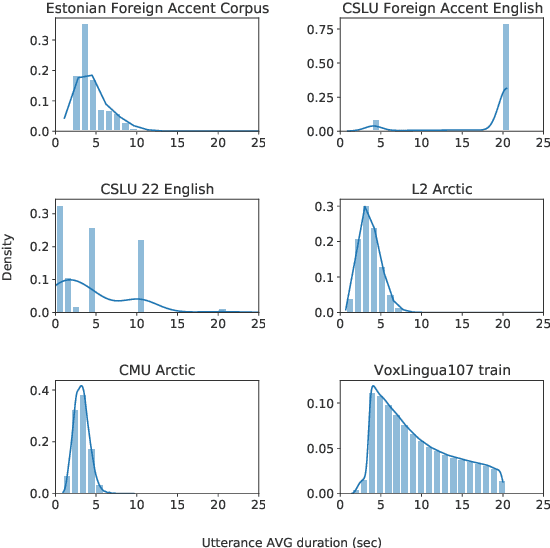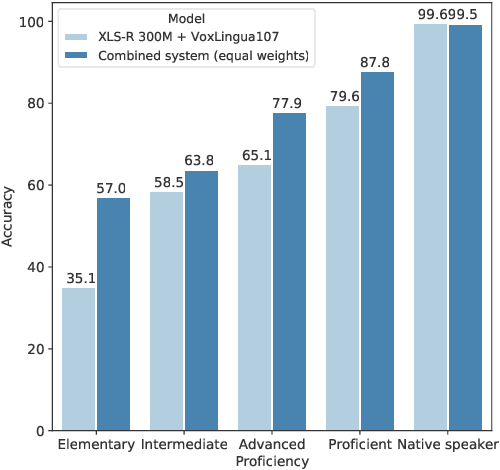Improving Language Identification of Accented Speech
Paper and Code
Apr 01, 2022



Language identification from speech is a common preprocessing step in many spoken language processing systems. In recent years, this field has seen a fast progress, mostly due to the use of self-supervised models pretrained on multilingual data and the use of large training corpora. This paper shows that for speech with a non-native or regional accent, the accuracy of spoken language identification systems drops dramatically, and that the accuracy of identifying the language is inversely correlated with the strength of the accent. We also show that using the output of a lexicon-free speech recognition system of the particular language helps to improve language identification performance on accented speech by a large margin, without sacrificing accuracy on native speech. We obtain relative error rate reductions ranging from to 35 to 63% over the state-of-the-art model across several non-native speech datasets.
 Add to Chrome
Add to Chrome Add to Firefox
Add to Firefox Add to Edge
Add to Edge